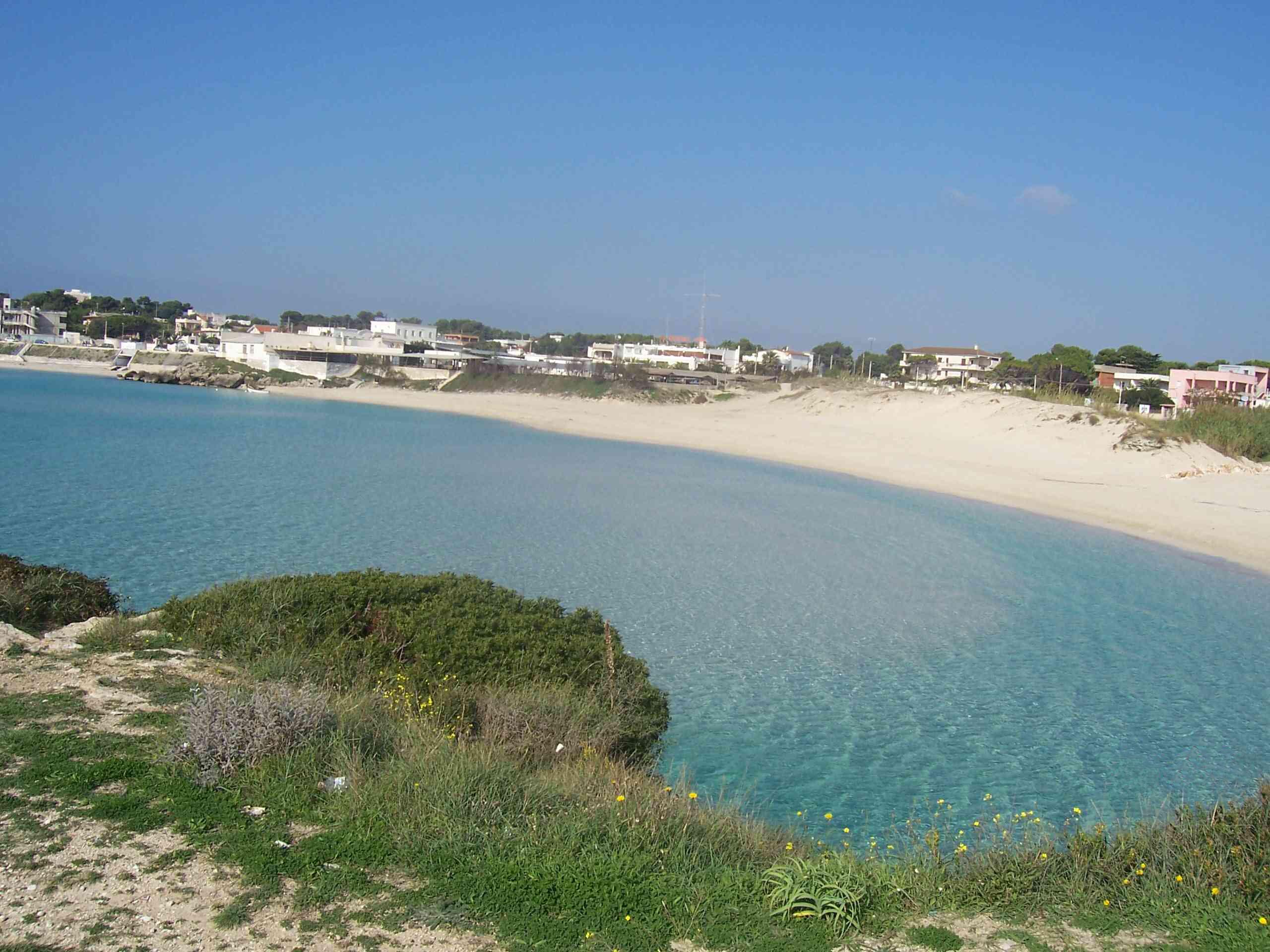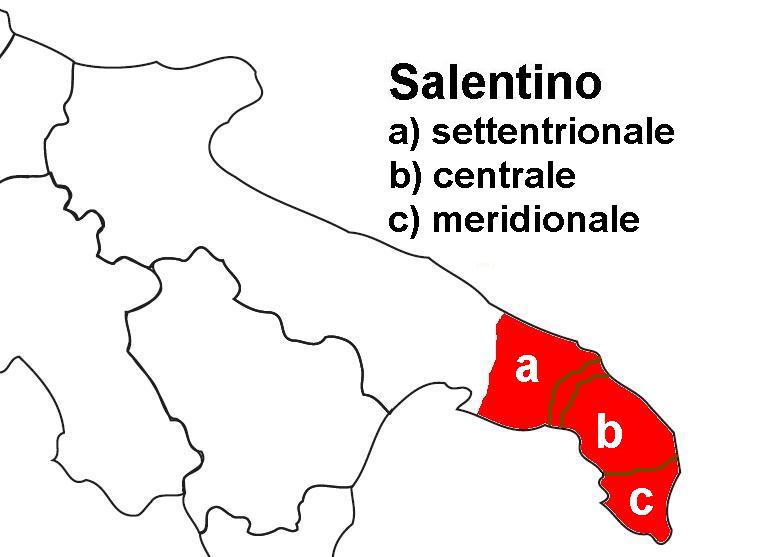|
Province Of Taranto
The province of Taranto ( it, provincia di Taranto; Tarantino: ; Salentino: ), previously known as the province of the Ionian, is a province in the Apulia region of Italy. Its capital is the city of Taranto. It has an area of , and a total population of 581,092 (2017). There are 29 ''comuni'' (singular: ''comune'') in the province, all of which are listed at comunes of the Province of Taranto. The coat of arms of the province contains a scorpion, which Pyrrhus is thought to have seen when looking down at Taranto. History When Italy was unified, the province of Lecce was formed; the western section of this later became the current province of Taranto. On 23 September 1923, Taranto became the capital of a new province based on the ancient Terra d'Otranto, in recognition of the important role the city had served since ancient times. Until 1951, the new province was called the "Province of the Ionian". The scorpion on the city's coat of arms may have been used as its emblem in anci ... [...More Info...] [...Related Items...] OR: [Wikipedia] [Google] [Baidu] |
Provinces Of Italy
The provinces of Italy ( it, province d'Italia) are the second-level administrative divisions of the Italy, Italian Republic, on an intermediate level between a municipality () and a regions of Italy, region (). Since 2015, provinces have been classified as "institutional bodies of second level". There are currently 107 institutional bodies of second level in Italy, including 80 ordinary provinces, 2 autonomous provinces, 4 regional decentralization entities, 6 free municipal consortia, and 14 Metropolitan cities of Italy, metropolitan cities, as well as the Aosta Valley region (which also exercises the powers of a province). Italian provinces (with the exception of the current Sardinian provinces) correspond to the NUTS statistical regions of Italy, NUTS 3 regions. Overview A province of the Italian Republic is composed of many municipalities (). Usually several provinces together form a region; the region of Aosta Valley is the sole exception—it is not subdivided into prov ... [...More Info...] [...Related Items...] OR: [Wikipedia] [Google] [Baidu] |
Comuni
The (; plural: ) is a local administrative division of Italy, roughly equivalent to a township or municipality. It is the third-level administrative division of Italy, after regions ('' regioni'') and provinces (''province''). The can also have the title of ('city'). Formed ''praeter legem'' according to the principles consolidated in medieval municipalities, the is provided for by art. 114 of the Constitution of Italy. It can be divided into ''frazioni'', which in turn may have limited power due to special elective assemblies. In the autonomous region of the Aosta Valley, a ''comune'' is officially called a ''commune'' in French. Overview The provides essential public services: registry of births and deaths, registry of deeds, and maintenance of local roads and public works. Many have a '' Polizia Comunale'' (communal police), which is responsible for public order duties. The also deal with the definition and compliance with the (general regulator plan), a document ... [...More Info...] [...Related Items...] OR: [Wikipedia] [Google] [Baidu] |
Epirus (ancient State)
Epirus (; Epirote Greek: , ; Attic Greek: , ) was an ancient Greek kingdom, and later republic, located in the geographical region of Epirus, in north-western Greece and southern Albania. Home to the ancient Epirotes, the state was bordered by the Aetolian League to the south, Ancient Thessaly and Ancient Macedonia to the east, and Illyrian tribes to the north. The Greek king Pyrrhus is known to have made Epirus a powerful state in the Greek realm (during 280–275 BC) that was comparable to the likes of Ancient Macedonia and Ancient Rome. Pyrrhus' armies also attempted an assault against the state of Ancient Rome during their unsuccessful campaign in what is now modern-day Italy. History Prehistory Epirus has been occupied since at least Neolithic times by seafarers (along the coast) and by hunters and shepherds (in the interior) who brought with them the Greek language. These neolithic peoples buried their leaders in large tumuli (mounds of earth that were raised over a grav ... [...More Info...] [...Related Items...] OR: [Wikipedia] [Google] [Baidu] |
Rome
, established_title = Founded , established_date = 753 BC , founder = King Romulus (legendary) , image_map = Map of comune of Rome (metropolitan city of Capital Rome, region Lazio, Italy).svg , map_caption = The territory of the ''comune'' (''Roma Capitale'', in red) inside the Metropolitan City of Rome (''Città Metropolitana di Roma'', in yellow). The white spot in the centre is Vatican City. , pushpin_map = Italy#Europe , pushpin_map_caption = Location within Italy##Location within Europe , pushpin_relief = yes , coordinates = , coor_pinpoint = , subdivision_type = Country , subdivision_name = Italy , subdivision_type2 = Region , subdivision_name2 = Lazio , subdivision_type3 = Metropolitan city , subdivision_name3 = Rome Capital , government_footnotes= , government_type = Strong Mayor–Council , leader_title2 = Legislature , leader_name2 = Capitoline Assemb ... [...More Info...] [...Related Items...] OR: [Wikipedia] [Google] [Baidu] |
Pyrrhus Of Epirus
Pyrrhus (; grc-gre, Πύρρος ; 319/318–272 BC) was a Greek king and statesman of the Hellenistic period.Plutarch. ''Parallel Lives'',Pyrrhus... He was king of the Greek tribe of Molossians, of the royal Aeacid house, and later he became king (Malalas also called him toparch) of Epirus. He was one of the strongest opponents of early Rome, and had been regarded as one of the greatest generals of antiquity. Several of his victorious battles caused him unacceptably heavy losses, from which the term " Pyrrhic victory" was coined. Pyrrhus became king of Epirus in 306 BC at the age of 13, but was dethroned by Cassander four years later. He saw action during the Wars of the Diadochi and regained his throne in 297 BC with the support of Ptolemy I Soter. During what came to be known as the Pyrrhic War, Pyrrhus fought Rome at the behest of Tarentum, scoring costly victories at Heraclea and Asculum. He proceeded to take over Sicily from Carthage but was soon driven out, and lost a ... [...More Info...] [...Related Items...] OR: [Wikipedia] [Google] [Baidu] |
Terra D'Otranto
The Terra di Otranto, or Terra d’Otranto (in English, Land of Otranto), is an historical and geographical region of Apulia, largely corresponding to the Salento peninsula, anciently part of the Kingdom of Sicily and later of the Kingdom of Naples, which became a province of the Kingdom of the Two Sicilies. After the unification of Italy in the 1860s, most of the area was renamed as the Province of Lecce. History Since the eleventh century, have formed an integral part of the Terra d'Otranto the territories of today's provinces of Lecce, Taranto and Brindisi (with the exception of Fasano, Cisternino) and, until 1663, there had also included the territory of Matera. Constituted executioner, the territory remained the administrative organization in the Kingdom of Sicily Kingdom of Naples and the next. Its capital was, at first, Otranto, but, during the Norman period (twelfth century), the city's canal was replaced by Lecce. Geography The Otranto was bounded on the north ... [...More Info...] [...Related Items...] OR: [Wikipedia] [Google] [Baidu] |
Comunes Of The Province Of Taranto
The following is a list of the 29 municipalities (''comuni'') of the Province of Taranto, Apulia, Italy. List See also *List of municipalities of Italy References {{Province of Taranto Taranto Taranto (, also ; ; nap, label=Tarantino, Tarde; Latin: Tarentum; Old Italian: ''Tarento''; Ancient Greek: Τάρᾱς) is a coastal city in Apulia, Southern Italy. It is the capital of the Province of Taranto, serving as an important comme ... ... [...More Info...] [...Related Items...] OR: [Wikipedia] [Google] [Baidu] |
Comune
The (; plural: ) is a local administrative division of Italy, roughly equivalent to a township or municipality. It is the third-level administrative division of Italy, after regions ('' regioni'') and provinces (''province''). The can also have the title of ('city'). Formed ''praeter legem'' according to the principles consolidated in medieval municipalities, the is provided for by art. 114 of the Constitution of Italy. It can be divided into ''frazioni'', which in turn may have limited power due to special elective assemblies. In the autonomous region of the Aosta Valley, a ''comune'' is officially called a ''commune'' in French. Overview The provides essential public services: registry of births and deaths, registry of deeds, and maintenance of local roads and public works. Many have a '' Polizia Comunale'' (communal police), which is responsible for public order duties. The also deal with the definition and compliance with the (general regulator plan), a document ... [...More Info...] [...Related Items...] OR: [Wikipedia] [Google] [Baidu] |
Salentino
Salentino () is a dialect of the Extreme Southern Italian ( in Italian) spoken in the Salento peninsula, which is the southern part of the region of Apulia at the southern "heel" of the Italian peninsula. Overview Salentino is a dialect of the Extreme Southern Italian language group (in Italian ''Italiano meridionale estremo''). It is thus closer to the Southern Calabrian dialect and the dialects of Sicily than to the geographically less distant dialects of central and northern Apulia. The traditional areas where Salentino is spoken are the aforementioned Province of Lecce, much of the southern part of the province of Brindisi, and the southern part of Taranto province. History The Salentino dialect is a product of the different powers and/or populations that have had a presence in the peninsula over the centuries: indigenous Messapian, Ancient Greek, Roman, Byzantine Greek, Lombard, French and Spanish influences are all, to differing levels, present in the modern dialec ... [...More Info...] [...Related Items...] OR: [Wikipedia] [Google] [Baidu] |
Apulia
it, Pugliese , population_note = , population_blank1_title = , population_blank1 = , demographics_type1 = , demographics1_footnotes = , demographics1_title1 = , demographics1_info1 = , demographics1_title2 = , demographics1_info2 = , demographics1_title3 = , demographics1_info3 = , timezone1 = CET , utc_offset1 = +01:00 , timezone1_DST = CEST , utc_offset1_DST = +02:00 , postal_code_type = , postal_code = , area_code_type = ISO 3166 code , area_code = IT-75 , blank_name_sec1 = GDP (nominal) , blank_info_sec1 = €76.6 billion (2018) , blank1_name_sec1 = GDP per capita , blank1_info_sec1 = €19,000 (2018) , blank2_name_sec1 = HDI (2018) , blank2_info_sec1 = 0.845 · 18th of 21 , blank_name_sec2 = NUTS Region , blank_info_sec2 = ... [...More Info...] [...Related Items...] OR: [Wikipedia] [Google] [Baidu] |
Tarantino Dialect
Tarantino (; Tarantino: ; it, dialetto tarantino), spoken in the southeastern Italian region of Apulia, is a transitional language, most of whose speakers live in the Apulian city of Taranto. The dialect is also spoken by a few Italian immigrants in the United States, especially in California. History The Tarantino dialect traces its origins into ancient times, when the territory was dominated by the Messapii. The colonisation by the Greeks founded Taranto not only as the capital of Magna Graecia but as a centre of poetry and theatre. The Greeks had left considerable influence on Tarantino, both in vocabulary and morpho-syntax, and a very peculiar accent that scholars corresponded to Doric. These influences are still found in many Tarantino words of Greek origin. Subsequently, the city of Taranto became a Roman city, thus introducing much Vulgar Latin vocabulary. During the Byzantine and Lombard periods, Tarantino acquired diphthongization: the short ''o'' changed to '' ... [...More Info...] [...Related Items...] OR: [Wikipedia] [Google] [Baidu] |



.jpg)
